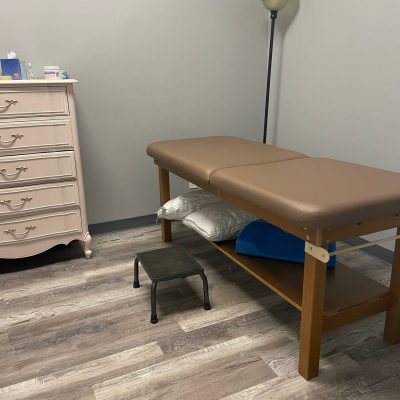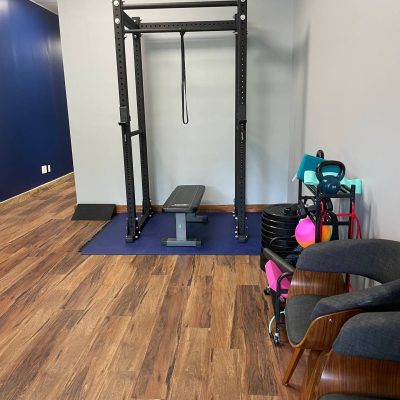Endometriosis is a chronic condition that affects millions of women worldwide, causing pain, discomfort, and a range of other symptoms. While medical interventions like surgery and medication are commonly used to manage endometriosis, pelvic floor therapy offers a holistic approach that can complement these treatments. In this blog post, we will explore how pelvic floor therapy can be beneficial for individuals with endometriosis, helping to alleviate pain, improve pelvic function, and enhance overall quality of life.
Understanding Endometriosis and its Impact on the Pelvic Floor:
Endometriosis is a condition in which the tissue that normally lines the uterus (endometrium) grows outside the uterus, commonly on the ovaries, fallopian tubes, and pelvic structures. This abnormal tissue growth can cause adhesions, inflammation, and pain in the pelvic region. Additionally, endometriosis can contribute to pelvic floor dysfunction, leading to issues such as pelvic pain, painful intercourse (dyspareunia), bladder and bowel problems, and muscle tension.
How Pelvic Floor Therapy Can Help:
Pelvic floor therapy, also known as pelvic rehabilitation, focuses on the muscles, ligaments, and connective tissues that support the pelvic organs. Here’s how pelvic floor therapy can benefit individuals with endometriosis:
Pain Management:
Endometriosis often leads to pelvic pain, which can be debilitating and significantly impact daily life. Pelvic floor therapy incorporates various techniques, such as manual therapy, myofascial release, and relaxation exercises, to alleviate pelvic pain and reduce muscle tension. The therapist works closely with the individual to develop a personalized treatment plan that targets specific areas of pain and discomfort.
Visceral Mobilization:
Visceral Mobilization/ Manipulation is a manual therapy technique that focuses on gently mobilizing and releasing restrictions within the organs and surrounding tissues. While there is limited research specifically on the use of visceral mobilization for endometriosis, it can potentially offer several benefits for individuals with this condition:
-
Reduce Adhesions: Endometriosis often leads to the formation of adhesions, which are abnormal connections between organs or tissues. These adhesions can cause pain, restrict movement, and impair organ function. Visceral mobilization techniques aim to break up adhesions, improving organ mobility and reducing discomfort.
-
Improve Organ Function: Endometriosis can affect the normal function of pelvic organs, such as the uterus, ovaries, fallopian tubes, and bladder. Visceral mobilization techniques can help restore optimal organ movement and function by releasing tension and improving blood flow. This can potentially alleviate symptoms related to organ dysfunction, such as urinary frequency, bladder pain, or bowel irregularities.
-
Enhance Circulation and Lymphatic Flow: Endometriosis can lead to inflammation and congestion in the pelvic region, affecting blood circulation and lymphatic drainage. Visceral mobilization techniques can help stimulate blood flow, reduce congestion, and improve lymphatic drainage. This can contribute to reducing inflammation, promoting tissue healing, and potentially alleviating pain associated with endometriosis.
-
Alleviate Pain and Discomfort: Visceral mobilization techniques, when performed by a skilled therapist, can target areas of pain and discomfort associated with endometriosis. By releasing tension and reducing restrictions in the affected organs and tissues, individuals may experience relief from pelvic pain, deep pelvic pressure, and other related symptoms.
-
Support Overall Pelvic Health: Visceral mobilization is a part of a comprehensive approach to pelvic health. By addressing organ mobility, function, and overall pelvic alignment, it can help optimize the pelvic environment and support the body’s natural healing processes. This integrated approach can contribute to better management of endometriosis symptoms and promote overall pelvic well-being.
Muscle Relaxation:
Endometriosis-related pain and inflammation can cause the pelvic floor muscles to become tense and tight. Pelvic floor therapy helps release muscle tension through stretching, deep breathing exercises, and relaxation techniques. By promoting muscle relaxation, individuals can experience reduced pain, improved blood flow, and enhanced overall pelvic function.
Rehabilitation Post-Surgery:
For individuals who undergo surgery to treat endometriosis, pelvic floor therapy can play a crucial role in the rehabilitation process. Surgery can cause scar tissue formation and changes in pelvic floor muscle tone. Pelvic floor therapy assists in restoring muscle strength, flexibility, and coordination after surgery, facilitating a smoother recovery and reducing the risk of pelvic floor dysfunction.
Bladder and Bowel Function
Endometriosis can affect bladder and bowel function, leading to symptoms such as urinary urgency, frequency, constipation, or painful bowel movements. Pelvic floor therapy includes bladder and bowel retraining techniques, education on proper voiding and bowel habits, and exercises to improve pelvic floor muscle coordination. These interventions can help individuals regain control over their bladder and bowel function and minimize associated symptoms.
Emotional Support and Education:
Living with endometriosis can take an emotional toll. Pelvic floor therapy provides a supportive environment where individuals can discuss their concerns, fears, and frustrations. Therapists offer education about endometriosis, pain management strategies, and lifestyle modifications to empower individuals to take an active role in their own care. This comprehensive approach addresses not just the physical symptoms but also the emotional well-being of individuals.
Pelvic floor therapy offers a valuable and holistic approach to managing endometriosis symptoms and improving quality of life. By addressing pain, muscle tension, bladder and bowel dysfunction, and providing emotional support, pelvic floor therapy can help individuals with endometriosis regain control over their bodies and enhance their overall well-being. If you have endometriosis, consider consulting with a qualified pelvic floor therapist to explore the potential benefits of pelvic floor. Visceral mobilization is a treatment technique that requires advanced training. Magic City Physical Therapy has highly trained Pelvic Floor Physical Therapists trained in Visceral Mobilization to help you manage your Endometriosis symptoms.







